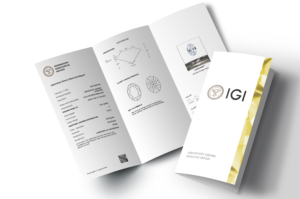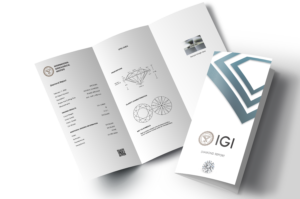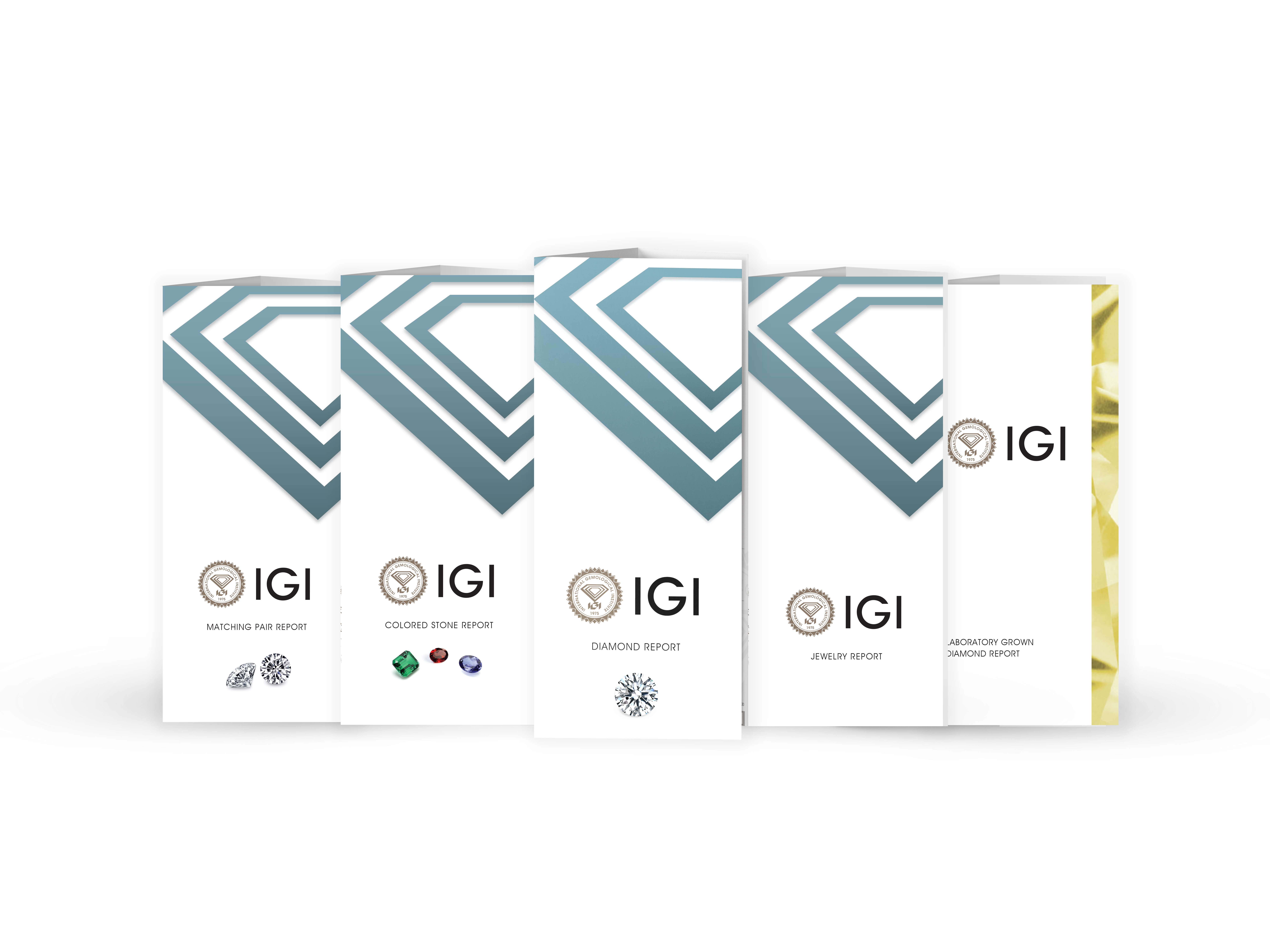Episode 154
Jewelry Journey Podcast – Avi Levy
What you’ll learn in this episode:
- What causes a customer to trust (or not trust) a gem laboratory
- How the International Gemological Institute (IGI) is trying to make the jewelry industry more sustainable
- Why labs, retailers and dealers have a duty to educate customers on gemstones
- Why lab-grown gems are growing in popularity, and why some customers will always choose natural stones
About Avi Levy
Avi Levy currently serves as President of the International Gemological Institute (IGI) North America. With 30 years of fine jewelry expertise, Avi brings valuable experience to the Institute including diamond sourcing, manufacturing, product development, brand partnerships and wholesale trade to major jewelry retailers. Skilled in building relationships and trust within all areas of the supply chain, his leadership skills and expertise gained from various roles have yielded advantageous results and strengthened key partnerships.
Additional Resources:
Photos:




Transcript:
Founded in 1975, the International Gemological Institute (IGI) is the largest independent gemological laboratory worldwide with more than 20 laboratories. Avi Levi leads the North American division of the business, and his goal is to bring this esteemed company into the 21st century. He joined the Jewelry Journey Podcast to talk about why he partnered with SCS Global Services to make IGI’s work more sustainable; how IGI is maintaining trust with clients while updating its offerings; and why he wants to educate consumers on the intricacies of natural and lab-grown stones. Read the episode transcript here.
Sharon: Hello, everyone. Welcome to the Jewelry Journey Podcast. Here at the Jewelry Journey, we’re about all things jewelry. With that in mind, I wanted to let you know about an upcoming jewelry conference, which is “Beyond Boundaries: Jewelry of the Americas.” It’s sponsored by the Association for the Study of Jewelry and Related Arts, or, as it’s otherwise known, ASJRA. The conference takes place virtually on Saturday and Sunday May 21 and May 22, which is around the corner. For details on the program and the speakers, go to www.jewelryconference.com. Non-members are welcome. I have to say that I attended this conference in person for several years, and it’s one of my favorite conferences. It’s a real treat to be able to sit in your pajamas or in comfies in your living room and listen to some extraordinary speakers. So, check it out. Register at www.jewelryconference.com. See you there.
This is a two-part Jewelry Journey Podcast. Please make sure you subscribe so you can hear part two as soon as it comes out later this week. Today, my guest is Avi Levy, North American President of the International Gemological Institute or IGI, a 45-year-old company. IGI provides the fine jewelry community and consumers with a broad range of services including independent diamond grading reports and laser inscription. Several months ago, IGI announced its collaboration with SCS Global Services to work to offset its carbon emissions by 2022, with intentions to roll this out across IGI’s 20 laboratories worldwide. Avi and his team are bringing a breath of fresh air to this established company, and we’re going to hear all about that today. Avi, welcome to the program.
Avi: Hi, how are you? Thanks for having me.
Sharon: So glad to have you. You have a lot going on, and we want to hear all about it. You’ve been in the jewelry industry for several decades. Can you tell us about your experience?
Avi: Sure, I could tell you a little bit. I started pretty much right out of high school. My dad is a diamond manufacturer/cutter, so he was in the business. He got me into the business, and I got interested. I started working retail on 47th Street when I was in college, so it started there. Slowly but surely, I went to different phases of the industry. I learned more about diamonds. I learned more about trading. I learned how to grade diamonds overseas in Israel. I came back, and I started trading, buying and selling diamonds, and little by little, I made it to different levels of the industry. I worked with diamond jewelry manufacturers, so I was able to meet some of the larger retail jewelry chains throughout the country. I also got the pleasure of going overseas to India a few times a year to purchase diamonds. So, I’m pretty well-versed in all different sides of the business. I feel I’ve been a true student of the business.
Sharon: Did you ever cut diamonds?
Avi: I did, but it only lasted for about three or four months. Me and my dad couldn’t make it work, so I had to go, basically. But I got that experience, and it was good. In the beginning, it’s good to learn all different parts of an industry or a certain skillset just to see what you like and to get the basics of everything. It was a great experience.
Sharon: You have fabulous experience. That is an incredible foundation. Tell us about the International Gemological Institute. You’re doing a lot right now. What does it do? This is the first time I’ve heard of it.
Avi: Like you said, we’ve been around for 45 years. For me, when I got the call about IGI, it was like a call to arms in a way, because as I mentioned, I started when I was a kid. I started at a time when the diamond business was in a whole different place. I learned about trust. I learned about reputation. I learned about how to deal with people early on, and those things stuck with me. To me, the diamond business is about trust; it is about reputation. We offer consumers such a beautiful product, so we have to be able to back it up. So, when IGI came calling, for me, it was like a circle back to my roots on the reputation and trust side of things, because what we do is important for the industry, for the wholesaler, for the retailer and for the consumer. We institute that level of trust into people, and we need to do it the right way.
When I came onto IGI, I was asked to look at the organization and see how we could move forward with it. It’s been around for a long time, IGI. We want to be around for 20+ years going into the future. In order to do that, you have to change a few things that are going on with the organization. There are some things that will never change: grading standards, how we grade, why we grade. Those things will always be there, but innovating technology, giving superb customer service, understanding what our customers want and how to achieve difference is important. Since I’ve come on, I’ve helped my staff open their eyes, look further and look out of the box we’ve all been in, just to see how we can be more important to the industry, how our services can be more important, and how we can help consumers at the end of the line trust IGI to give them grading and satisfaction with what they’re buying or purchasing.
Sharon: When they offered you the position or started talking to you about it, was it totally different because it was a corporate environment?
Avi: My history has been creating jewelry, working with teams to create jewelry, working to buy the diamonds, then working with factories overseas to put it together. I was in a whole different side of the business. Coming to the other side in terms of a laboratory was a great learning experience. It’s completing my years in the business, giving me another view of how things are done and why they’re done. It’s very interesting how a laboratory works, the mechanisms that make it work and why people trust us. Those are a few of the things that really interested me to further my knowledge of the industry.
Sharon: Why do you think people trust, and what destroys that trust?
Avi: When we were young, people told us to be careful as you grow in this industry. You build your trust. It takes you years to build trust. It takes you years to build your reputation, and it can all be over in a minute. It happens. It’s how people act. It’s why they do things. A laboratory has to have standards. A laboratory has to have processes. A laboratory has to be able to stand behind the decisions they make and the gradings they put out. We’ve been around for 45 years and, like I said, we want to be around for much longer, so therefore we have to hold true to our standards, put our best foot forward and gain the industry’s trust as well as the consumer’s trust. We’re a true third party. We are interested in what we do. We’re not interested in who we do it with, meaning we’re interested in making sure the grading we do, the reports we publish, the pieces we verify, we’re doing that in the correct manner with the right grading and the right information to the customer.
Sharon: Was that something you changed when you came in?
Avi: Oh, no. IGI’s reputation has been around for a long time. It’s there first and foremost. They’ve done an excellent job all these years. I’m just helping to take it forward. Being in business for 45 years, that’s a long time.
Sharon: Yes, it sure is. When you came in, your first day in the office, did you have a mind for all these ideas, looking at how things were done?
Avi: There was a lot of excitement. For me, the excitement was also the unknown. How am I going to tackle this? What am I going to do? How am I going to work with 90 new people, or, at the time, 70 new people? I took it slow and got to know everybody individually little by little. I talked to people, asked them what they do, who they are, things they’ve seen over the years, things they want. Slowly, you start to feel what’s going on.
With the pandemic, it was interesting. The pandemic forced me to learn the business firsthand. We had a skeleton staff because there were certain things we had to do for some customers. I think there were eight or nine, 10 people max at a time in the office, and that was only two days a week. The other two days, we just needed a few key people in the office. So, I got to learn each step of the business, from taking in the merchandise to going through the processes, printing out reports, proofreading, printing them, seeing all the issues that come with it. Little by little, we started to see the efficiencies we could put into place to make IGI run smoother, a bit more efficiently.
Sharon: Your background isn’t in technology, though.
Avi: It’s not.
Sharon: Was it overwhelming?
Avi: I don’t know if it was overwhelming. Again, it was with open eyes. I came in with open eyes, no past premonitions, no bias, just looking at IGI and at how we can move forward and be of better service. That was on my mind. I had to make that happen, but at first, I had to see how IGI ticks, what makes IGI tick every day, how we work. It was a lot of challenges, a lot of learning. I’m happy to say that two and a half years into it, we are definitely progressing. We’re moving forward. We’re still learning, and we’re looking for new opportunities.
Sharon: The stones you look at, do your customers and dealers send them to you? Do they walk into an office? How does that work?
Avi: It goes both ways. Obviously, people in New York and New Jersey, they can bring things over. People in different parts of the country, they’ll ship the merchandise in, and we’ll take it from there.
Sharon: You’re President of North America. How many divisions are there?
Avi: Currently it’s New York and Los Angeles.
Sharon: So, you’re in charge of basically the whole operation in North America.
Avi: In North America, yes.
Sharon: I know sustainability has become a big issue and very important to your organization.
Avi: It is.
Sharon: You announced your collaboration with SCS Global Services and you’re working to offset your carbon emissions.
Avi: Yes.
Sharon: And you want to roll this across all your labs eventually?
Avi: Correct.
Sharon: Can you tell us who SCS is? Tell us about its initiative.
Avi: SCS is a third-party company that initiates processes for companies to become sustainable carbon-neutral to develop a healthier footprint. We met them three years ago. They came into the industry as outsiders, but they have a lot of experience in different industries: in coffee, in apparel, in other areas in different industries to make them more sustainable. They gathered about 20 people from San Francisco, their headquarters, to tell us about themselves, tell us what they do and why their mission is so important.
I think they won most of the people over in that three-day meeting pretty quickly because our people are of the same mindset, in terms of asking how do we make ourselves better? How do we make our companies better, how do we make our people better and how do we do our part in the big world to make it a little bit greener, a little bit cleaner? To do that in the diamond and jewelry industry was pretty unheard of, and I think it helped to have true professionals from outside the industry, who knew processes with different industries, to come in and help us. I think most of us took it in a very positive light. Two years later, not just us, but a lot of industries are looking at themselves to see what they can do to be part of this initiative. It’s gained steam throughout the industry.
Sharon: What did you change? Did they change the process? Did they look at the diamonds that came in after you looked at them? How did they accept them?
Avi: No, for us, they look at the company, at IGI, our carbon emissions, how much paper we use, what kind of paper we use, what kind of plastic we use. They looked at different areas of the company and gave us options on how to minimize our carbon footprint and how to make it a healthier atmosphere. We’re still learning. Susan, who’s our Chief Marketing Officer here in New York and in North America, she’s taking a class to help further her education so we can understand this whole phenomenon even better.
Sharon: Does IGI do different things now with your paper, with your reports, with your plastic?
Avi: We’re trying to limit as much plastic as we can. We use recyclable paper and recyclable plastic wherever possible, and we keep looking to find other areas on how to minimize it. It’s a process. It’s not like you just walk in and turn off the lights and it’s running and good. It’s a process. It’s getting people to think differently as well. We all function a certain way for our lifetimes. To ask people to change is good, but you’ve got to give them reason to and give them steps. That’s what we’re trying to do for our people.
Sharon: How does this impact your customers? Do they care about what you’re doing?
Avi: That’s a great question. I think initially not everybody does, but I think it’s growing. People are looking into this more and more, and they want to make things better. The want things to be cleaner, healthier. Look at all the hybrid tech we have out there: cars to electricity to energy. The world is changing. People say, “Oh, what can you do?” We can do this much. If I can do this much, and you can do that much, and everybody puts it all together, we’ll come out ahead. The sum is always greater together than it is separate.
Sharon: Give me an example of how it impacts your customers. I understand recycling paper and all that, but—
Avi: I think it shows our customers that we’re thinking in a different manner. We’re not thinking the same old way. To do nothing is easy, but to make change, that’s difficult. It’s a process, and not everybody wants to see that process. We’ve had our difficulties, no doubt. We’ve had obstacles. We’re going to, but one day at a time we try to get through it and get to the next phase. I think it shows our customers that we’re willing to change and to try to make things better. Even if it’s just a small percentage of what we can do, like I said before, it’s important for everybody to do their part.
Sharon: After you reach a certain level where you’ve achieved a certain amount, is that when you plan to roll it out into your laboratories across the country?
Avi: We went through a good six months last year in this whole process, and we’ve already started to share the good news with our other locations. Little by little, everybody’s looking at themselves and seeing what they can do. I’m pretty sure two of our offices have already reached out to SCS and are in the process of getting themselves set up as well.
Sharon: As part of your sustainability, you’re on the Mercury Free Mining board.
Avi: Yeah.
Sharon: Can you tell us a little bit about that?
Avi: It’s funny how things circulate. Minds tend to move and think with each other. MFM, Mercury Free Mining, came to me from a very different mindset. Ronnie Vanderlinden, who is part of the board, came to me and told me, very simply, they’re looking to see how they can eradicate mercury from the artisanal miner’s process of processing gold in the mines. I think a lot of the bigger mines have already handled this, but there are smaller mines that are still using mercury in their process.
There are other options, but again, it’s about change. It’s about seeing the change through. It’s about explaining to them why it’s so important. People are used to doing things a certain way for a long time. Sometimes they don’t realize the good or the bad anymore, and you have to point it out to them to help them. Toby Pomeroy, this is his vision. He’s the leader on this. It’s his vision that started this company and this mission a while ago. We’re helping support him to get the message across to everybody.
Sharon: Who is Toby Pomeroy?
Avi: I can send you links about him, but he is based on the West Coast. He’s a jewelry expert. He’s been in the industry for a very long time, and this is something that hits close to him. He’s had experiences with artisanal miners over the years, and he sees the need for change. He focused on it and developed this mercury-free mining platform.
Sharon: It’s definitely worthwhile. I can see how it’s an uphill battle until you gain momentum.
Avi: And we are, slowly. We’re gaining momentum. We’re gaining notoriety. We’re attracting more people to this mission. We had a great turnout at the JCK show back in August. Next week, a lot of people are in town because there are different functions going on in the city. We’re going to have another outing and push the message even more.
Sharon: An outing to get together and meet or an outing to a mine?
Avi: No, an outing to meet. It’s going to be here in the city. We’re gathering different vendors, customers, other people who can potentially join the board and help us get this message out there further.

